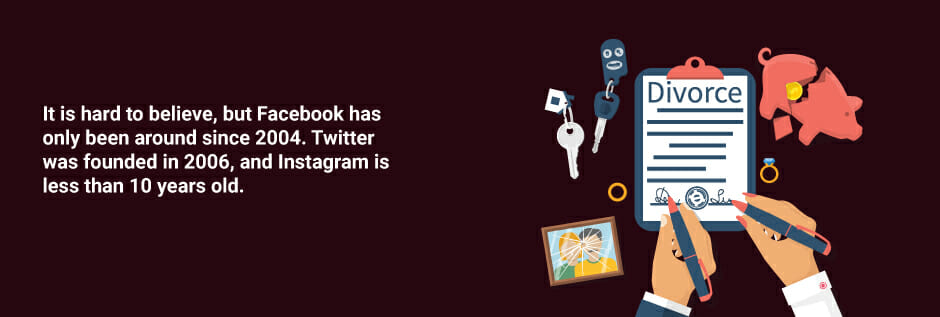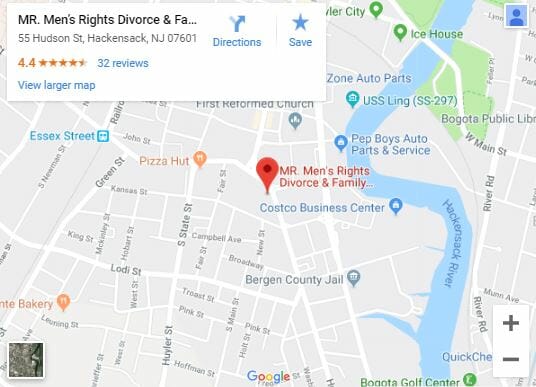
During a divorce, the general rule is that you want to preserve as much privacy as possible. So adjusting your privacy settings to block your spouse on social media during your divorce may help you avoid your posts being used against you in court (or emotional manipulation), especially if your divorce is contested and contentious. If you and your spouse are on good terms, blocking them may not be necessary. But on the other hand, it could be in your interest to do so because all it takes is a single dispute to no longer be on those good terms …and possibly leading to a hostile relationship. Posts on social media, depending on their content, could give your spouse the upper hand in divorce proceedings if they are used against you in court.
For this reason, ideally, you would not post anything on social media that presents you or your children in a negative light, could be taken out of context, or could otherwise be used against you should your soon-to-be-ex see it. The better path may be to not post at all during your divorce. If you do continue posting during divorce, your privacy settings should be adjusted to afford you maximum protection and you should be very careful about what you post. You should also ask your friends and family not to tag you in their posts while your divorce is pending and consider if there are people you and your spouse are both “friends” with, which may allow her or him to see your posts even when blocked.
What Not to Post on Social Media During Your Divorce
If you make information publicly available online, your spouse can use it against you during your divorce—and the same goes for you in reverse. As long as your spouse is using legal means to see your posts, it may show up as evidence in your divorce case. Even seemingly innocuous posts can be damaging depending on the circumstances and issues in your marriage and divorce. For this reason, while it is a good idea not to post at all, you should definitely refrain from posting items such as the following:
- Photos of drinking and late nights out that could imply a wild lifestyle and/or substance abuse issues and potentially factor into child custody decisions.
- Posts about large purchases or expensive vacations, which could be used as evidence that you have assets that you did not disclose.
- Complaints or rude comments about your spouse, which could cause the judge to feel sympathetic to your spouse and view you in a negative way.
- Threatening or violent statements that could raise the specter of domestic violence being an issue.
- Any posts that contradict information that you have provided during your divorce proceedings or that could make you look bad in the eyes of the court.
- Any posts with you in a new romantic relationship. You are just asking for trouble.
These are just a few examples. In short, if you stay on social media during divorce, carefully consider everything you say as it could hurt your case. Also, remember that depending upon your social media settings, your location may show up when you post, allowing your spouse to see where you are and whom you are spending time with, which could be harmful.
Should I Delete Social Media When Going Through A Divorce?
Every case is different, but you are not allowed to delete social media posts after the divorce has started. This would be spoilation of evidence. Same goes for your spouse. This applies to social media accounts such as Facebook, Twitter, and others as well as posts on those platforms. So, if you have already posted potentially damaging photos, videos, or statements, discuss it with your divorce attorney right away to understand the harm they may cause and what you should do. However, if a divorce has not started in any way, then you may be okay to clean up your social media. It is suggested before you do anything to speak with an experienced attorney about the pro’s and con’s.
There are potential risks to deleting social media posts after a divorce has started. Deleting posts can trigger disputes or make it appear as if you have something to hide. If you rush to delete posts, it could possibly cause more issues than the posts may (or may not have) caused in the first place — including implying that you are trying to get rid of the evidence. And intentionally getting rid of the evidence is a legal prohibition that can lead to other legal consequences. You do not want to make any mistakes that could jeopardize your ability to protect your interests in your divorce, so we highly recommend getting legal advice for your specific situation.
What Should I Do If My Spouse Knows My Social Media Passwords?
If your spouse knows your social media passwords, you should change them right away. The same goes for email passwords. While you may be forced to hand over certain social media, email, or text information during your divorce, you do not have to give your spouse unfettered access outside of formal court procedures.
Another thing to keep in mind is that your spouse may also decide to block you during your divorce. If your spouse does so, do not try to access their accounts using their passwords if you know them, which is strongly ill-advised. Doing so could get you in possible criminal trouble and/or affect you in your divorce depending upon all the circumstances — such as if you snooped and found the passwords so access was unauthorized, and you are going into accounts against their wishes. There are in fact criminal law repercussions for doing this. It is also ill advised to set up a fake profile to “stalk” your spouse on social media because if found out, that could lead to a restraining order against you.
On the other hand, if your spouse is posting information publicly online and allowing you to view her or his profiles, or even if you are blocked but can see their posts through mutual online friends, there is no legal reason not to follow his or her account. In fact, monitoring social media activity can provide a key source of evidence in many divorces.
Contact an Experienced New Jersey Family Lawyer To Learn More About Social Media during Divorce
If you are contemplating a divorce and have concerns about the potential pitfalls associated with social media, or if you are wondering how to use your spouse’s public postings as evidence in your divorce, we encourage you to contact [MFR] Men’s & Fathers’ Rights Divorce Lawyers for a consultation. Call (201) 880-9770 to arrange a time to speak with a divorce lawyer in Hackensack who can answer your questions and guide you throughout the process of ending your marriage.

